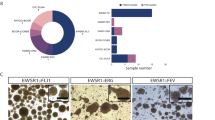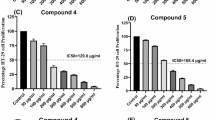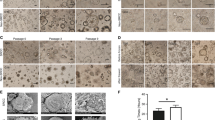Abstract
THE indications previously obtained1 that the high reducing capacity of tumours in our dichloro-phenolindophenol test is due principally to a substance other than vitamin C have now been confirmed. In determinations of vitamin C content, by the histological tooth protection method, groups of guinea pigs were given 5 gm. each per day of freshly excised Jensen rat sarcoma (kindly provided by Mrs. Barbara Holmes). The various control groups received 0, 1, 2, 3 and 4 c.c. of orange juice, and 5 c.c. of orange juice plus 5 gm. of sarcoma. The degrees of protection afforded were found to be 1–2 for the sarcoma, 0, 1–2, 2–3, 3, 3–4 respectively for the orange juice controls, and 3–4 for orange juice plus sarcoma (4 = complete protection). It follows that 5 gm. of the tumour is equivalent in vitamin C content to no more than about 1 c.c. of orange juice.
This is a preview of subscription content, access via your institution
Access options
Subscribe to this journal
Receive 51 print issues and online access
$199.00 per year
only $3.90 per issue
Buy this article
- Purchase on SpringerLink
- Instant access to full article PDF
Prices may be subject to local taxes which are calculated during checkout
Similar content being viewed by others
References
Harris, NATURE, 132, 27, July 1, 1933.
Author information
Authors and Affiliations
Rights and permissions
About this article
Cite this article
HARRIS, L. A Reducing Substance in Tumours. Nature 132, 605 (1933). https://doi.org/10.1038/132605a0
Issue date:
DOI: https://doi.org/10.1038/132605a0
This article is cited by
-
Über die Beziehung des Follikelhormons zur Ätiologie Maligner Tumoren und seine Bedeutung für die Krebsgenese
Klinische Wochenschrift (1940)
-
Zur Biochemie des Jensen-Sarkoms
Zeitschrift für Krebsforschung (1937)
-
Über die Natur der Reduzierenden Substanz im Gehirn
Klinische Wochenschrift (1936)
-
Ascorbic acid (vitamin C) content of some Indian plant materials
Proceedings / Indian Academy of Sciences (1935)
-
A Reducing Substance in Brain Tissue
Nature (1934)



